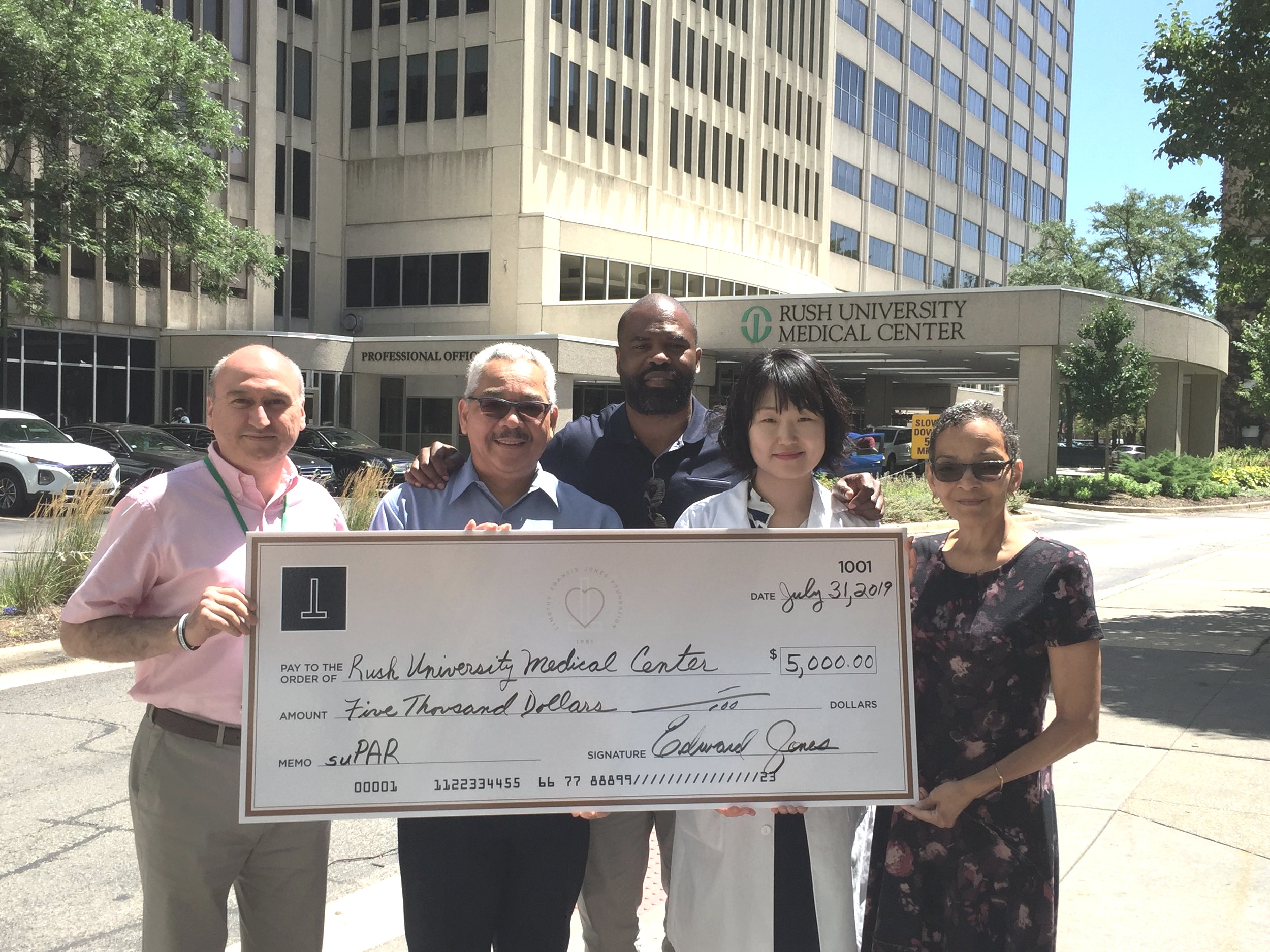Photos courtesy of TFJ Foundation.
Time certainly seems to be flying by! It was in the year 2017 that the Timothy Francis Jones Foundation made it’s very first grant for cancer research. It seemed only proper that the first grant should be to the institution that did so much for Tim during his battle with kidney cancer. That institution was Rush University Medical Center’s Cancer Center on Chicago’s westside. At that impromptu ceremony, we presented Dr. Nicklas Pfanzelter, Tim’s oncologist at Rush, with a check for cancer research. Dr. Pfanzelter has since moved on but the great work at Rush Medical Center continues. On July 31, 2019, the foundation was able to make another contribution to Rush University Medical Center. This is the third consecutive year we have made this particular donation which was totally generated by our supporters. The check for $5,000 was presented by Bernadette & Edward Jones and Rich Lomax. Accepting for the medical center was Eunsil Hahm, PhD, Mehmet Altintas, PhD & Megan Kono.
After a working lunch we received a special treat. Our group was conducted on a tour of Rush’s Nephrology research laboratory. In these labs, researchers perform the basic science down to the molecular level on kidney disease. The laboratory team of Dr. Hahm is focused on understanding the chronic kidney disease (CKD) process, its etiology, pathology, and molecular mechanisms. Her work in conjunction with Dr. Jochen Reiser’s suPAR research could produce a game changing development in early detection and treatment of a variety of illnesses covered under the umbrella of kidney disease. With this early indicator of kidney disease being discovered, now comes the research to find safe and practical applications to prevent and treat the disease.
In Tim’s case, his renal cancer was not detected until it had reached Stage IV. This is a typical scenario for this disease since symptoms can be subtle and often misdiagnosed until the disease reaches its later stages. It is our hope that this research can be used in a two-pronged attack on kidney disease through the use of early detection and improved outcomes through innovative treatments.

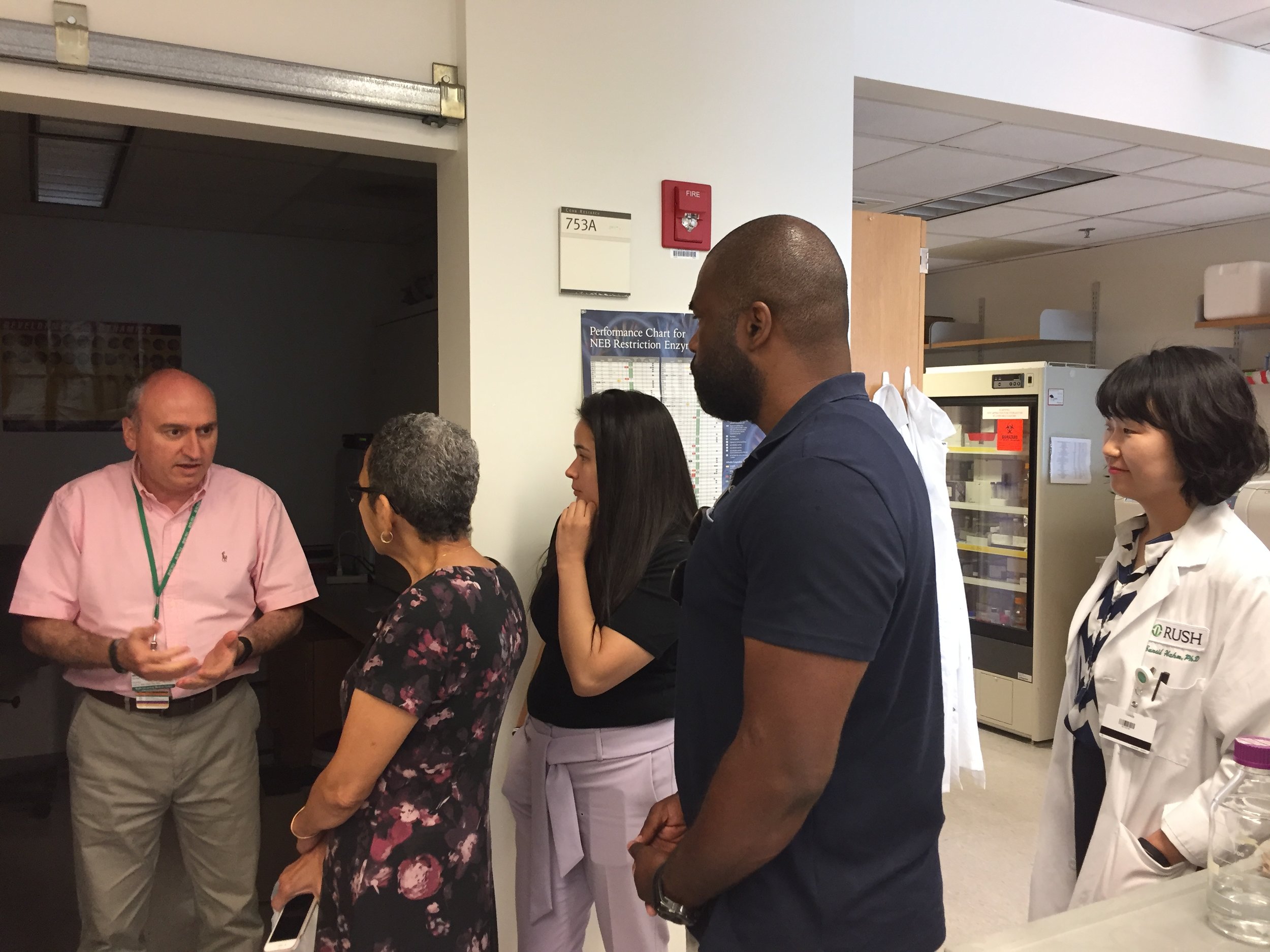
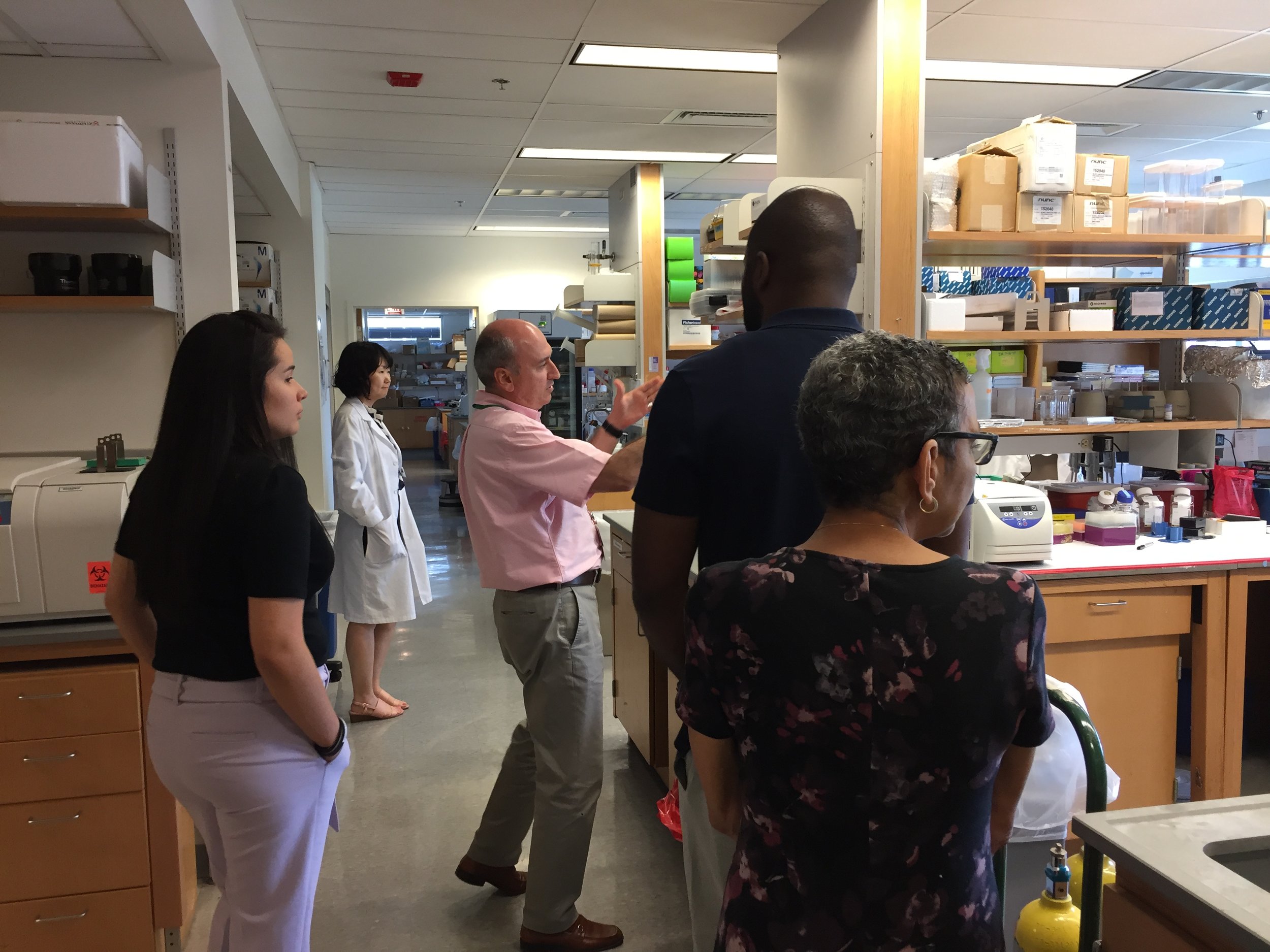

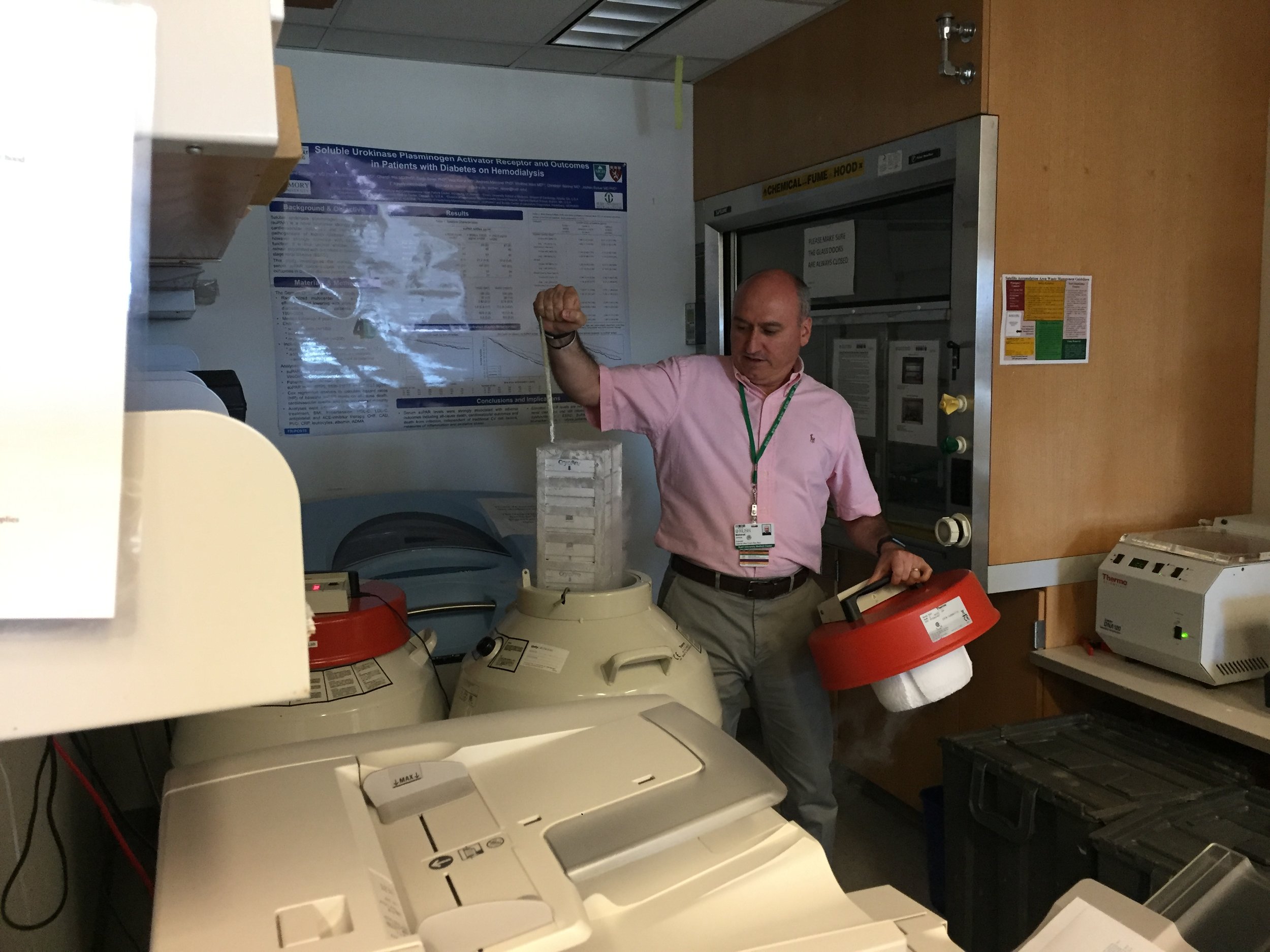

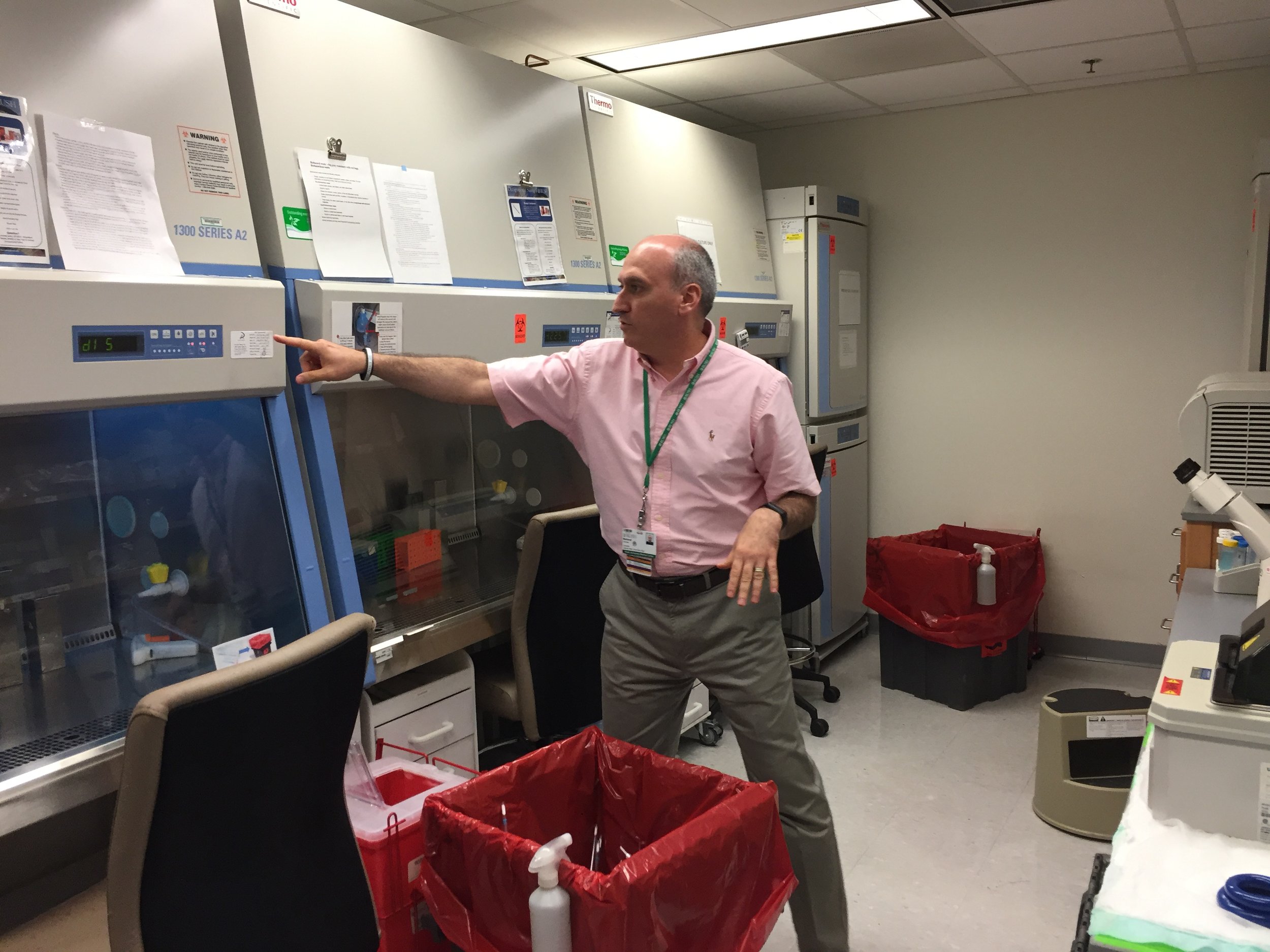

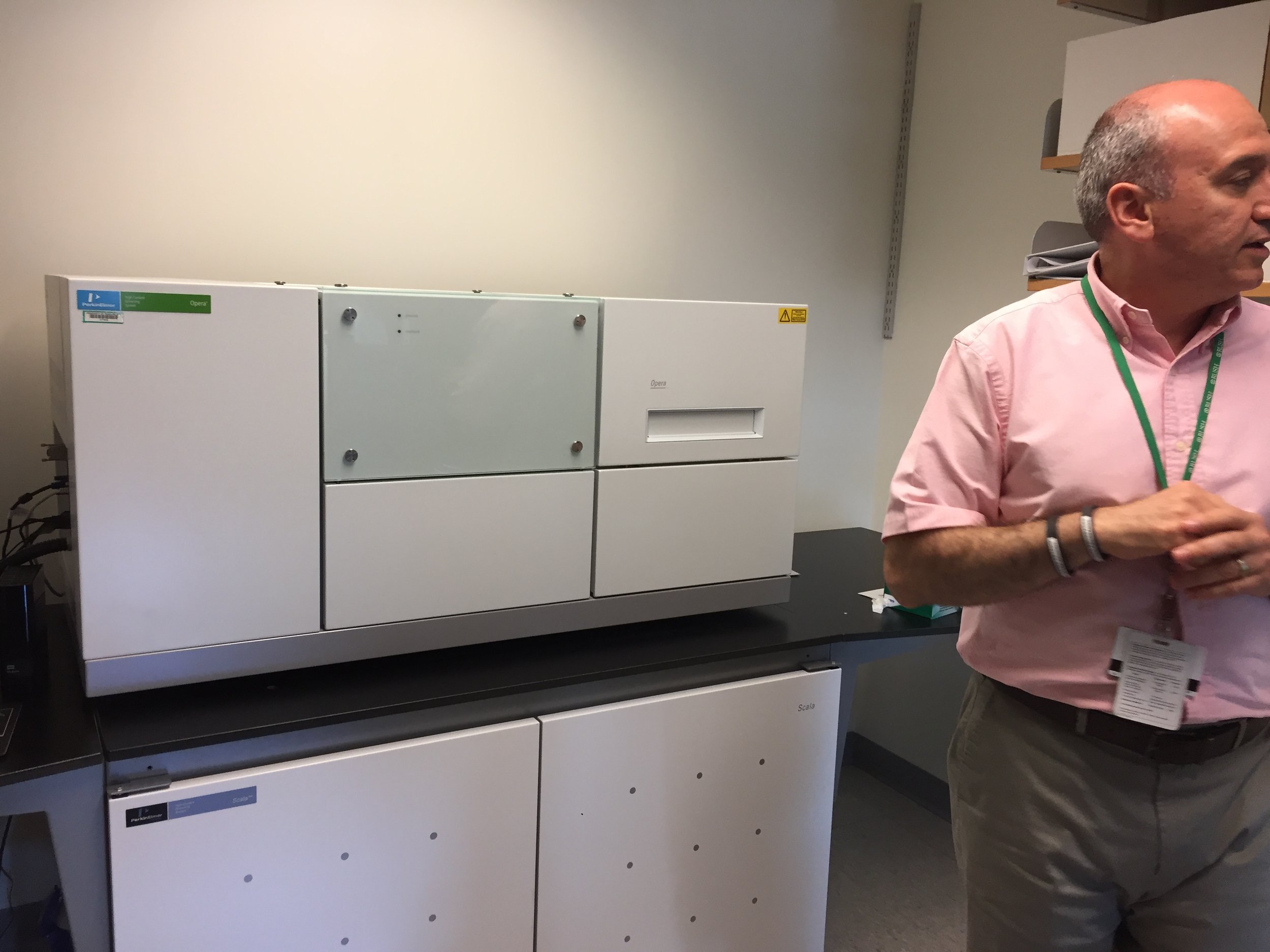
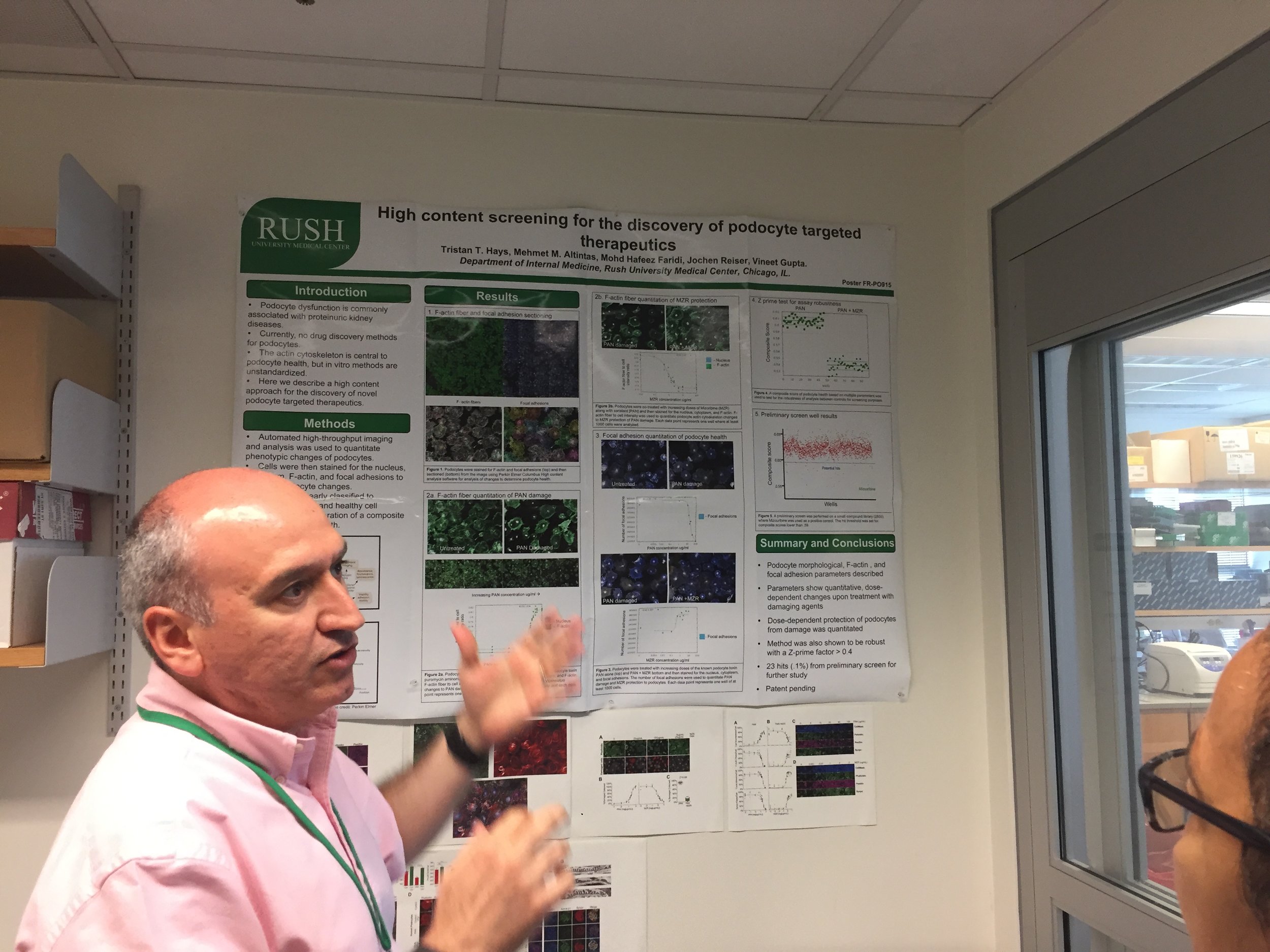
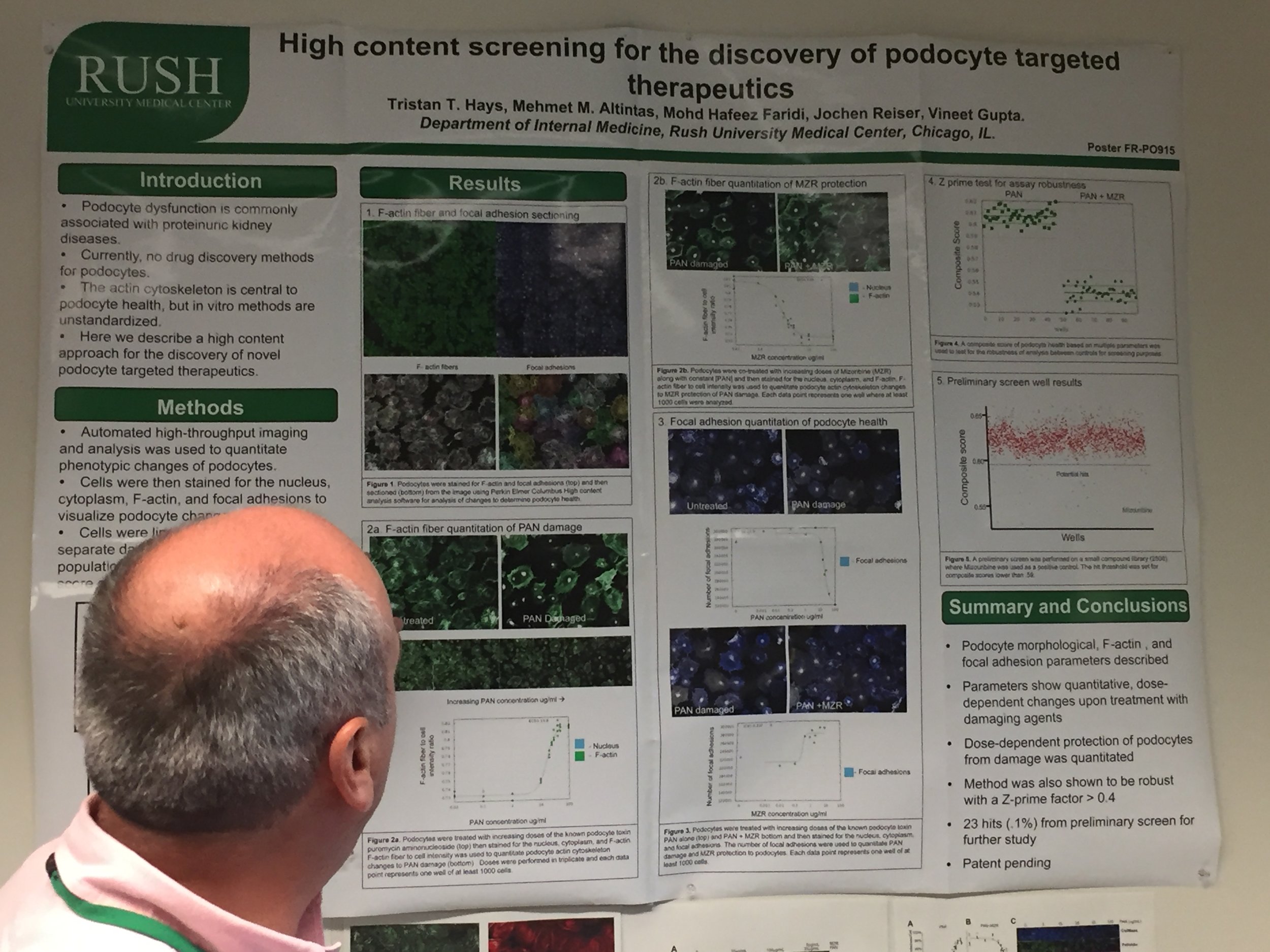
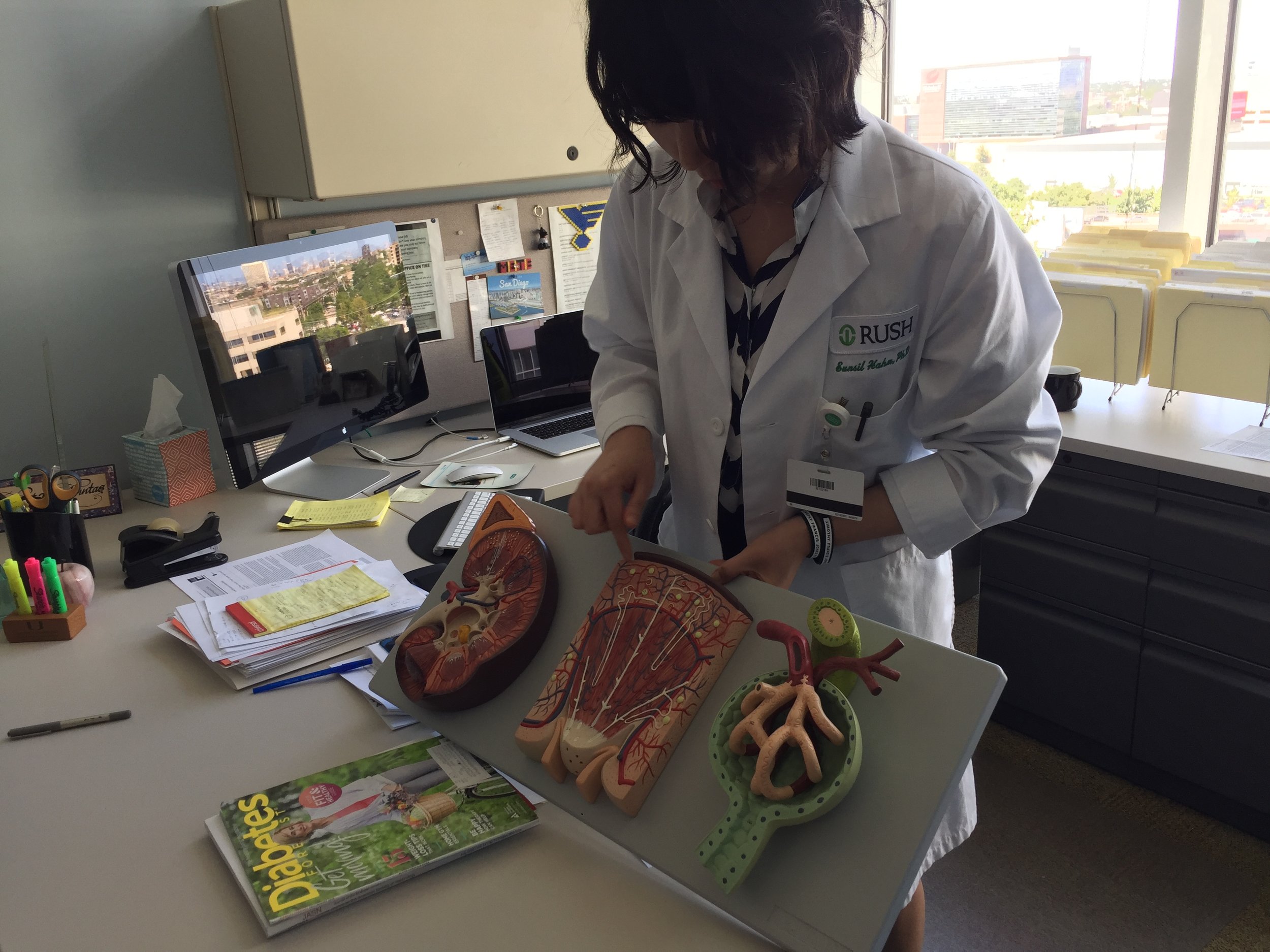
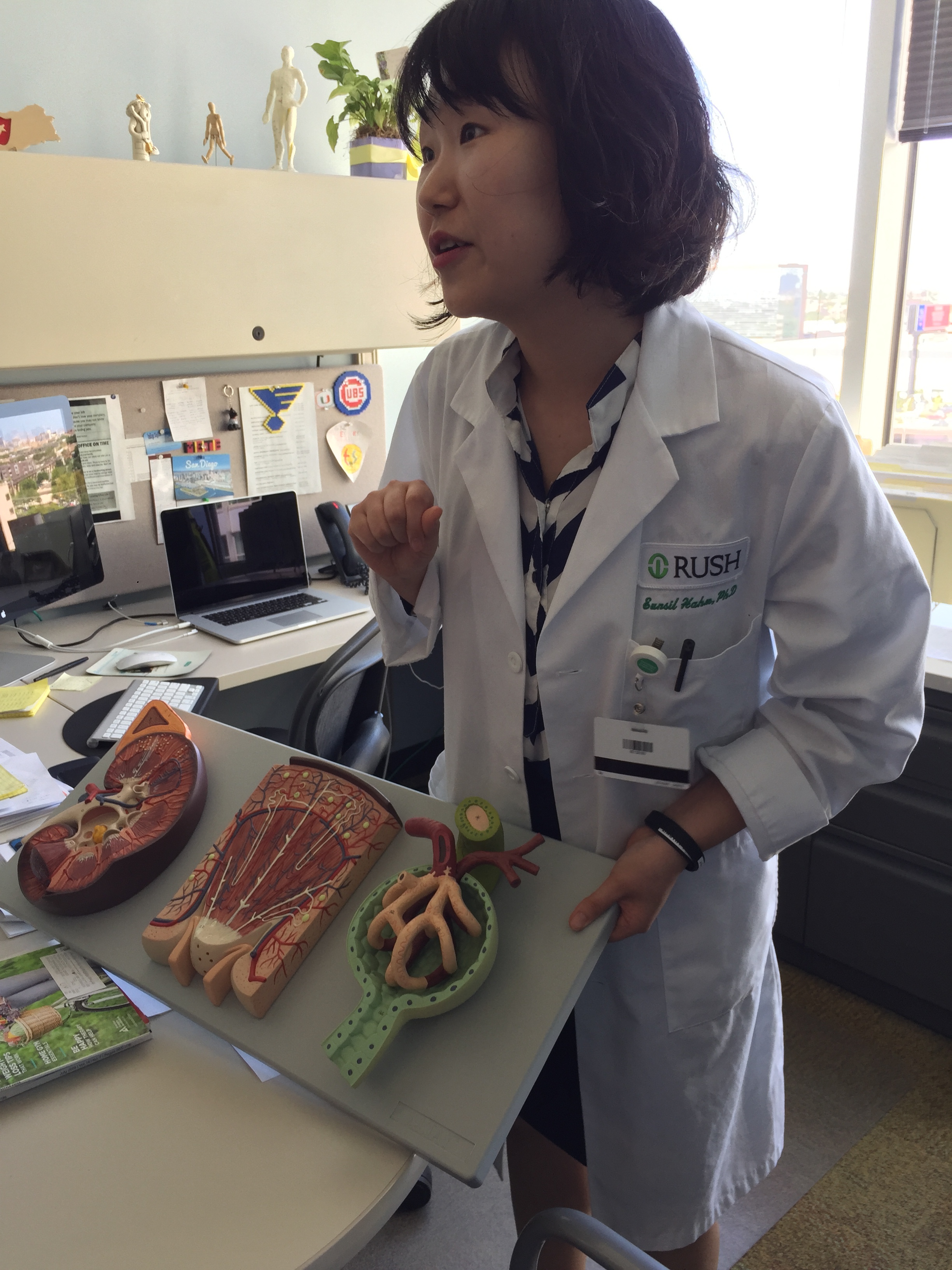
Photos courtesy of TFJ Foundation.


